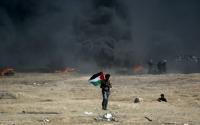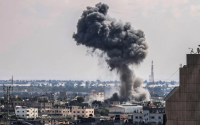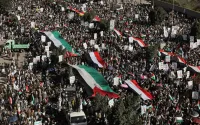Much has been said in recent days about the instability of Pakistan. But the danger lies not so much within the population as a whole, where religious extremists are a small minority (more confessional votes are cast in Israel than Pakistan), as within the Army. Officers and other ranks who have worked with the Taliban in Afghanistan and the Lashkar-i-Tayyaba in Kashmir have become infected with zealotry. At the same time native Islamists, aware of their weakness in the country, have focused their efforts on the Army. Estimates vary between 15 and 30 per cent: whatever the exact figure, these men will not look on in silence while their colleagues in Afghanistan are attacked from bases inside Pakistan. In Kashmir there has already been open opposition to the last ceasefire. An Islamist Pakistani captain refused to vacate Indian-held territory. A colonel despatched by the Pakistani High Command to order an immediate withdrawal was shot dead as a traitor to Islam. Already a partial wreck, Pakistan could be destroyed by a civil war.
The terrorists who carried out the killings in the US were not bearded illiterates from the mountain villages of Afghanistan. They were educated, middle-class professionals from Egypt and the Hijaz province of Saudi Arabia, two key US allies in the region. What made them propagandists of the deed? The bombing of Iraq, economic sanctions, the presence of American Forces on Saudi soil. Politicians in the West have turned a blind eye to this, as they have to the occupation of Palestine and the crimes of Israel. Without profound change in the Middle East , Osama bin Laden, dead or alive, is of little significance.
In the West, Saudi Arabia is simply a source of oil. We prefer not to notice the scale of social and religious oppression, the widespread dejection and anxiety, the growing discontent among Saudis. The Wahabbi Islam practised there has been the inspiration of the Taliban. It was the Saudi monarchy that funded fanaticism in South Asia; it was they (and the CIA) who sent bin Laden to fight the Russians in Afghanistan. Islam was seen by all the experts as the main bulwark against Communism. Denied any secular openings, dissenting graduates have turned to radical Islam, accusing the Saudi royal family of hypocrisy, corruption and subservience to America. These are clever tacticians, open in their admiration of bin Laden and the regime headed by his father-in-law, Mullah Omar, in Kabul. When they blow up bases or foreigners in the Kingdom, the security forces round up a few Pakistani or Filipino immigrants and execute them to show the US that justice has been done, but the real organisers are untouchable. Their tentacles reach into the heart of Saudi society, and it's debatable whether they can now cut them off, even at the request of the United States.






